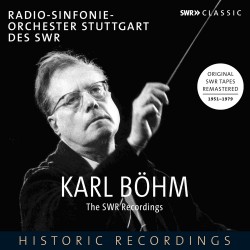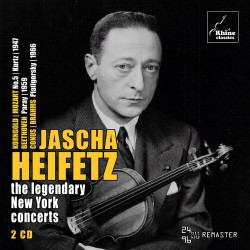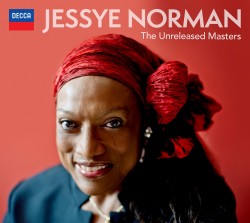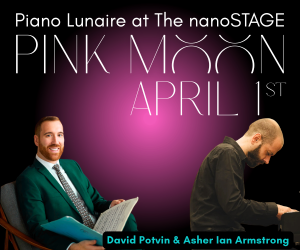 Born on August 28, 1894 in Graz, Austria Karl Böhm was one of the most outstanding conductors of the last century. He made his first foray into conducting in 1917 in his hometown before migrating to Munich in 1921 at the behest of Bruno Walter. In 1933 Böhm debuted at the Vienna State Opera and in the same year was appointed GM of the Dresden State Opera. Upon his death in 1981 he left many recordings with different orchestras in a wide repertoire and is best known for his Beethoven, Brahms, R. Strauss, Wagner and of course Mozart. Some Torontonians may remember him guest conducting here in the 1960s. I attended a very memorable rehearsal and concert at Massey Hall. He was a strict disciplinarian with a very fine ear.
Born on August 28, 1894 in Graz, Austria Karl Böhm was one of the most outstanding conductors of the last century. He made his first foray into conducting in 1917 in his hometown before migrating to Munich in 1921 at the behest of Bruno Walter. In 1933 Böhm debuted at the Vienna State Opera and in the same year was appointed GM of the Dresden State Opera. Upon his death in 1981 he left many recordings with different orchestras in a wide repertoire and is best known for his Beethoven, Brahms, R. Strauss, Wagner and of course Mozart. Some Torontonians may remember him guest conducting here in the 1960s. I attended a very memorable rehearsal and concert at Massey Hall. He was a strict disciplinarian with a very fine ear.
SWR Classic has issued a six-disc CD set of live recordings from concerts with the Radio Symphony Orchestra Stuttgart. This orchestra, as many believe, is a superior ensemble and better than many European philharmonics. The first disc contains two works from a live concert on September 18, 1974, Mozart’s Symphony No.40 K550 followed by the Beethoven Piano Concerto No.4 with pianist Branka Musulin. This is the first performance and recording from the set and I found it movingly fresh and satisfying. It certainly gave me great expectations that were completely realized by the repertoire, performances and recordings that followed.
The set continues with Symphonies Nos.2 and 7 by Beethoven, recorded in concert in Stuttgart on February 14, 1979. Disc Three contains Beethoven’ s Ninth Symphony recorded live in Stuttgart on November 12, 1959 with soloists of Ruth-Margret Pütz, Sibylla Plate, Walter Geisler and Karl-Christian Kohn, with the Sudfunkchor and Philharmonischer Chor Stuttgart. As I expected this is a dramatic and intense performance with no holding back in the many explosive tuttis that characterize this work. The choir and soloists complete a flawless cast.
Johannes Brahms waited many years to write his first symphony. People were waiting for him to write a “Beethoven Tenth Symphony” as he was thought to be the logical successor to Beethoven and able to compose a work of this calibre no matter what he would call it. Of course, he had no intention to put himself in that position. He started his first symphony at the age of 22 but didn’t finish it until 1876 at the age of 43. If you don’t know the work, just know it is pure Brahms. Böhm understood that perfectly and his affectionate performance recorded in the studio reflects his deep admiration and understanding of the composer. Also on this disc is the well-known Schumann Piano Concerto Op.54, again with Musulin.
Disc Five opens with the beautiful Dvořák Symphony No.9 “From the New World.” A very animated approach to this popular work brings a more inspired performance than we are used to hearing. It is wonderful to hear the wind instruments in such balance with the orchestra. One can only imagine that this is what Dvořák intended. On the same disc is a vital performance of the Paul Hindemith Symphonic Metamorphosis of Themes by Carl Maria von Weber. This performance is unusually translucent. Disc Six contains one work, the Seventh Symphony by Anton Bruckner recorded live on September 18, 1974 in Stuttgart. Böhm certainly knew his way around Bruckner as this live performance confirms.
Karl Böhm The SWR Recordings
SWR 19123CD (naxos.com/CatalogueDetail/?id=SWR19123CD)
 From Rhine Classics we have an impeccable transfer of the Jascha Heifetz legendary New York concert of 1947 on two CDs. The Korngold Violin Concerto in D Major Op.35 broadcast performance is presented with the radio announcer’s introduction. He gives a brief history of Heifetz’ connection to the work as well as letting us know that Korngold himself is in the audience.
From Rhine Classics we have an impeccable transfer of the Jascha Heifetz legendary New York concert of 1947 on two CDs. The Korngold Violin Concerto in D Major Op.35 broadcast performance is presented with the radio announcer’s introduction. He gives a brief history of Heifetz’ connection to the work as well as letting us know that Korngold himself is in the audience.
After a little bit of tuning, we hear Heifetz and the New York Philharmonic conducted by Ephrem Kurtz. The recording is immaculate with neither click nor distortion belying its age. Clearly Heifetz is in position close to the microphone, as was his preference and the performance sounds authoritative. Also from the same March 1947 concert, we have the Mozart Violin Concerto No.5 in A Major K219, the “Turkish.”
On the second disc we hear the Beethoven Violin Concerto with the Detroit Symphony Orchestra under Paul Paray, this one from the United Nations General Assembly Hall in New York City on December 9, 1959. After the brilliant Carnegie Hall acoustics this performance sounds rather dry but all together certainly worth another hearing. The Brahms Double Concerto with Heifetz and Gregor Piatigorsky with an unnamed orchestra from December 15, 1966 is clearly an amateur recording from the stalls. This recording was made by a member of the audience and wisely released for its historic value as this was the last time Piatigorsky and Heifetz were to play together. Finally, the Jules Conus Violin Concerto edited by Leopold Auer from Carnegie Hall with unnamed orchestra and anonymous conductor. All in all, a must-have disc for Heifetz fans, including me.
Jascha Heifetz] – The Legendary New York Concerts
Rhine Classics RH-025 (rhineclassics.com/products/rh-025-2cd-jascha-heifetz-legendary-new-york-concerts).
 English Decca has issued another collection from their vaults of unreleased masters of unique performances in their famous beautiful sound, the excellence of which may be well remembered from when they introduced Full Frequency Range Recordings. They were exceptional for their day and some of them are prized by collectors. One of these invaluable unreleased recordings is the three-CD set of the late soprano Jessye Norman. I’ve been looking forward to this since it was announced, and I’ve not been disappointed. Norman was well known in some circles as a “dramatic soprano” a title she resented as her range was far beyond that described in such a way. On the first disc we have excerpts from Tristan and Isolde recorded in Leipzig with the Gewandhausorchester conducted by Kurt Masur during March and April in 1998. In the cast are Norman and Thomas Moser, Hannah Schwartz (Brangäne) and Ian Bostridge (Seemann). There are arias and duets from each of the four acts. The performances are excellent as is the conducting under the sensitive direction of Masur. The Liebestod is heartbreaking.
English Decca has issued another collection from their vaults of unreleased masters of unique performances in their famous beautiful sound, the excellence of which may be well remembered from when they introduced Full Frequency Range Recordings. They were exceptional for their day and some of them are prized by collectors. One of these invaluable unreleased recordings is the three-CD set of the late soprano Jessye Norman. I’ve been looking forward to this since it was announced, and I’ve not been disappointed. Norman was well known in some circles as a “dramatic soprano” a title she resented as her range was far beyond that described in such a way. On the first disc we have excerpts from Tristan and Isolde recorded in Leipzig with the Gewandhausorchester conducted by Kurt Masur during March and April in 1998. In the cast are Norman and Thomas Moser, Hannah Schwartz (Brangäne) and Ian Bostridge (Seemann). There are arias and duets from each of the four acts. The performances are excellent as is the conducting under the sensitive direction of Masur. The Liebestod is heartbreaking.
In the second disc there is outstanding singing in both the Four Last Songs of Richard Strauss and Wagner’s Wesendonckl-lieder. Performances are meaningful with sensitive support by the Berlin Philharmonic under James Levine.
The third disc brings us arias from the Joseph Haydn Scena di Berenice and arias from Berlioz’s Cléopâtre followed by Benjamin Britten’s Phaedra. Haydn’s Beatrice and Benedict is very attractive as conducted by Seiji Ozawa with the Boston Symphony.
This is a wonderful set that has given me great pleasure hour after hour. I must admit then that the Four Last Songs has regularly found its way to my player, although perhaps not quite as often as the third disc. But who’s checking?
Jessye Norman – The Unreleased Masters
Decca 4852984 (store.deccaclassics.com/*/CD/The-Unreleased-Masters/7MRD1YD8000).



